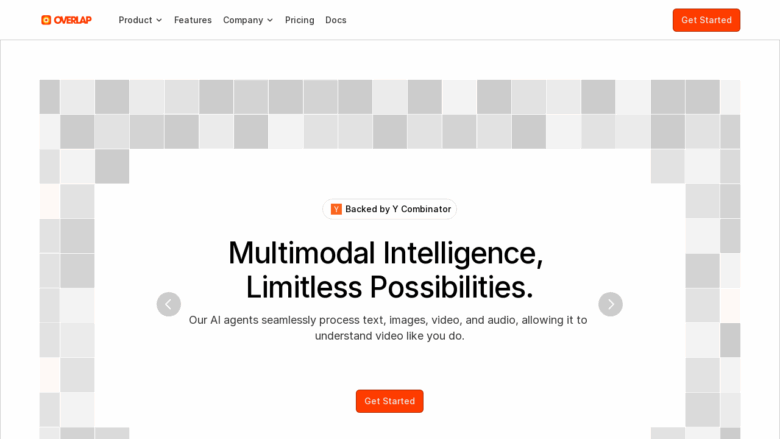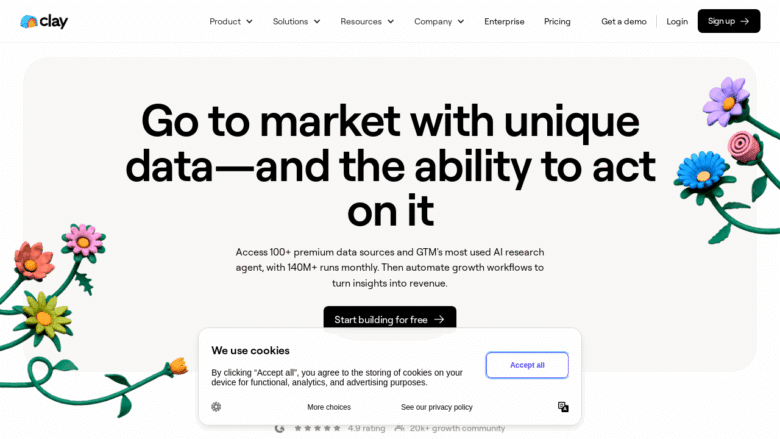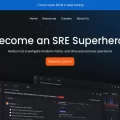In today’s digital landscape, video content has become the cornerstone of effective marketing strategies, with 86% of businesses now using video as a marketing tool. As demand for high-quality video content continues to rise, artificial intelligence has stepped in to revolutionize the production process. Among the emerging leaders in this space is Vid.ai, a cutting-edge AI video generation platform that’s rapidly gaining traction among content creators, marketers, and businesses looking to scale their video production capabilities without the traditional resource constraints.
What is Vid.ai and How Does it Transform Video Creation?
Vid.ai represents the next evolution in automated video content creation, leveraging sophisticated artificial intelligence algorithms to transform text prompts, images, and other inputs into fully-realized video content. Unlike conventional video editing tools that require extensive manual manipulation, Vid.ai employs advanced generative AI technology to handle the heavy lifting of video production.
The platform’s core strength lies in its ability to generate professional-quality video content from simple text descriptions, making video production accessible to users regardless of their technical expertise or creative background. This democratization of video creation tools has profound implications for content marketing strategies across industries.
Key Features That Set Vid.ai Apart from Traditional Video Creation Tools
Intuitive Text-to-Video Generation
At the heart of Vid.ai’s functionality is its powerful text-to-video conversion capability. Users can simply type detailed descriptions of their desired video content, and the platform’s AI engines translate these textual inputs into visually compelling video sequences. This feature dramatically reduces the time investment typically required for video production, enabling users to generate customized video content in minutes rather than hours or days.
The platform’s natural language processing capabilities have been fine-tuned to understand complex instructions, including scene transitions, emotional tones, and specific visual elements. This level of comprehension allows for unprecedented precision in translating creative vision into final video output.
Advanced Customization Options
Vid.ai doesn’t limit users to a one-size-fits-all approach. The platform offers extensive customization features for AI-generated videos, including:
Style presets: Choose from various cinematic styles, from documentary-style footage to animated explainers
Resolution controls: Generate videos in multiple formats, including standard 1080p and 4K ultra-high definition
Aspect ratio flexibility: Create content optimized for different platforms (16:9 for YouTube, 9:16 for Instagram Stories, 1:1 for social feeds)
Duration management: Produce videos of varying lengths, from brief social media clips to extended presentations
These customization options ensure that the output aligns perfectly with specific marketing objectives and platform requirements, offering versatile video content creation capabilities.
Multi-Modal Input Support
What truly distinguishes Vid.ai in the competitive landscape of AI video generators is its multi-modal input functionality. The platform can process various types of content as starting points, including:
Text prompts (text-to-video)
Static images (image-to-video)
Existing video clips (video enhancement)
Audio narration (audio-synchronized video)
This flexibility enables users to leverage existing assets in their video creation process, facilitating seamless integration with established content libraries and streamlining video production workflows.
Enterprise-Grade Content Management
For organizations producing video content at scale, Vid.ai offers robust enterprise video management solutions, including:
Collaborative workspaces for team-based video projects
Comprehensive asset libraries for storing and organizing video components
Version control systems for tracking iterations and approvals
Brand guideline integration to maintain visual consistency
These features make Vid.ai particularly valuable for large-scale video content production environments where efficiency and consistency are paramount.
Technical Performance: Speed, Quality, and Resource Optimization
Processing Efficiency
Vid.ai employs state-of-the-art neural rendering technology to generate videos with remarkable speed. Depending on complexity and output specifications, most standard videos can be rendered within minutes, with more complex productions typically completed within an hour. This rapid turnaround represents a paradigm shift from traditional video production timelines, which often extend to days or weeks.
The platform achieves this efficiency through a combination of distributed computing architecture and optimized AI models specifically designed for video generation tasks. This technical foundation enables high-speed video rendering without compromising on quality.
Output Quality Analysis
The visual quality of Vid.ai-generated content has improved dramatically with recent updates. Videos produced by the platform now feature:
Natural motion physics that avoid the “uncanny valley” effect
Consistent lighting and color grading across scenes
Realistic texture rendering for various surfaces and materials
Smooth transitions between sequences
While early iterations of AI video generation often produced noticeable artifacts or unnatural movements, Vid.ai has largely overcome these limitations through advanced motion synthesis algorithms and continuous model training.
Resource Optimization
From a technical perspective, Vid.ai demonstrates impressive efficiency in resource utilization. The platform’s cloud-based architecture dynamically allocates computing resources based on project requirements, ensuring optimal performance even during periods of high demand. This approach to resource-efficient video generation translates to more stable performance and predictable rendering times for users.
Comparing Vid.ai with Leading AI Video Generation Platforms
Vid.ai vs. Runway Gen-3
Runway’s Gen-3 model has gained recognition for its sophisticated motion handling, but Vid.ai offers several competitive advantages:
Feature | Runway Gen-3 | |
|---|---|---|
Text comprehension | Advanced contextual understanding | Good but less nuanced |
Style customization | Extensive preset library | Limited selection |
Output resolution | Up to 8K support | Maximum 4K |
Pricing model | Credit-based with generous free tier | Subscription-only |
While Runway excels in certain creative applications, Vid.ai provides more comprehensive AI video solutions for business users seeking versatility and scalability.
Vid.ai vs. Pika Labs
Pika Labs has emerged as a strong contender in the AI video space, particularly for creative professionals. Here’s how Vid.ai compares:
Feature | Pika Labs | |
|---|---|---|
User interface | Intuitive dashboard design | Steeper learning curve |
Enterprise features | Comprehensive team tools | Limited collaboration options |
Integration capabilities | Extensive API support | Basic integrations |
Content library | Extensive stock assets | User-supplied content only |
Vid.ai’s superior enterprise features make it the preferred choice for corporate video production needs, while Pika Labs might appeal more to individual creators seeking specific artistic effects.
Vid.ai vs. Luma AI
Luma AI has gained attention for its innovative approach to 3D scene understanding. Comparing the platforms:
Feature | Luma AI | |
|---|---|---|
Core strength | Comprehensive video generation | 3D object and scene manipulation |
Learning curve | Accessible to beginners | Requires technical knowledge |
Output formats | Multiple video formats supported | Limited export options |
Content types | Diverse content categories | Focused on product visualization |
Vid.ai offers a more versatile AI video platform for general video creation needs, while Luma AI excels in specialized 3D applications.
Practical Applications: How Businesses Are Leveraging Vid.ai
Content Marketing at Scale
E-commerce companies and digital marketers have embraced Vid.ai to dramatically increase their video content production capabilities. By leveraging the platform’s automation features, these businesses can generate product demonstrations, feature highlights, and promotional content for multiple items simultaneously, enabling mass video content creation with minimal resource expenditure.
Personalized Customer Communications
Forward-thinking organizations are utilizing Vid.ai to create personalized video messages for customers at various touchpoints in the customer journey. By integrating customer data with the platform’s generation capabilities, companies can produce customized video communications that address specific customer needs, significantly enhancing engagement compared to static or generic messaging.
Educational Content Development
Educational institutions and corporate training departments have found particular value in Vid.ai’s ability to transform instructional content into engaging video formats. The platform facilitates the creation of interactive learning videos and tutorial content without the production overhead traditionally associated with educational video development.
Multilingual Content Adaptation
Global organizations use Vid.ai to efficiently adapt video content for international markets. The platform’s language processing capabilities support the creation of multilingual video content with appropriate cultural considerations, streamlining the localization process for worldwide campaigns.
Implementation Considerations: Getting Started with Vid.ai
Technical Requirements
Vid.ai operates primarily as a cloud-based platform, with processing handled on remote servers rather than local hardware. This architecture minimizes the technical requirements for users, making the platform accessible through any modern web browser with a stable internet connection.
For enterprise implementations, the platform offers:
SSO integration for secure authentication
Private cloud deployment options for sensitive industries
Dedicated resources for high-volume production environments
These options ensure that Vid.ai can be implemented within various organizational IT infrastructures with appropriate security and performance considerations.
Integration Capabilities
Vid.ai’s robust API framework facilitates seamless integration with existing content management systems, marketing automation platforms, and digital asset management solutions. This interoperability enables organizations to incorporate AI video generation into established workflows, creating efficient end-to-end video production pipelines.
Learning Curve and Adoption Strategies
While Vid.ai’s interface is designed for intuitive use, organizations can accelerate adoption through:
Structured onboarding programs for content teams
Template creation for common video formats
Style guide implementation for brand consistency
Progressive implementation starting with specific content categories
These approaches help teams transition to AI-assisted video creation workflows with minimal disruption to existing operations.
Future Developments: The Evolving Capabilities of Vid.ai
The Vid.ai development roadmap indicates several exciting advancements on the horizon:
Enhanced character consistency for narrative-driven content
Improved handling of complex human interactions and emotions
Expanded reality manipulation features for creative applications
Deeper integration with emerging metaverse platforms
These upcoming features suggest that Vid.ai will continue to push the boundaries of automated creative video production, maintaining its position at the forefront of AI video technology.
Pricing Structure and ROI Considerations
Vid.ai employs a tiered pricing model that scales with usage requirements:
Free tier: Limited resolution and duration, with watermarking
Creator tier: Enhanced capabilities suitable for individual professionals
Business tier: Team collaboration features and priority rendering
Enterprise tier: Custom solutions for large-scale implementation
When evaluating the return on investment, organizations should consider:
Reduced production costs compared to traditional video creation
Accelerated content creation timelines
Expanded video output capacity
Decreased reliance on specialized creative personnel
For most business applications, Vid.ai delivers compelling video production ROI through significant efficiency gains and quality improvements.
Ethical Considerations in AI Video Generation
As with all generative AI technologies, Vid.ai raises important ethical considerations:
Content authenticity and disclosure requirements
Potential for deepfake misuse
Copyright implications of derivative works
Displacement effects on creative professionals
The platform has implemented several safeguards to address these concerns, including content detection mechanisms, usage policies, and transparency features. These measures reflect a commitment to responsible AI video development while empowering legitimate creative applications.
Frequently Asked Questions About Vid.ai AI Video Generator
What is Vid.ai and how does it work?
Vid.ai is an advanced AI video generation platform that converts text prompts, images, and other inputs into professional-quality videos. The platform uses neural rendering technology and generative AI algorithms to process your instructions and create customized video content in minutes rather than hours or days. Simply enter a detailed description of your desired video, and Vid.ai’s AI engines will transform your text into visually compelling video sequences.
How does Vid.ai compare to other AI video generators like Runway and Pika Labs?
Vid.ai offers several advantages over competitors like Runway Gen-3 and Pika Labs. While Runway excels in creative applications, Vid.ai provides more comprehensive enterprise solutions with up to 8K resolution support (compared to Runway’s 4K limit). Vid.ai also features a more intuitive dashboard design than Pika Labs, along with extensive API support and superior team collaboration tools. For business video production needs, Vid.ai typically outperforms both alternatives in terms of versatility and scalability.
What types of videos can I create with Vid.ai?
You can create virtually any type of video content with Vid.ai, including product demonstrations, marketing videos, educational tutorials, personalized customer communications, social media content, and corporate presentations. The platform supports multiple aspect ratios (16:9, 9:16, 1:1) and resolutions (up to 8K), making it suitable for content across different platforms and purposes.
Do I need video editing skills to use Vid.ai effectively?
No technical expertise or video editing skills are required to use Vid.ai. The platform is designed with an intuitive interface that allows anyone to generate professional-quality videos through simple text prompts. While understanding basic video concepts may help you craft more effective prompts, the AI handles all technical aspects of video production automatically.
What customization options does Vid.ai offer for video creation?
Vid.ai provides extensive customization features, including style presets (documentary, animated explainer, etc.), resolution controls (1080p to 8K), aspect ratio flexibility (for different platforms), and duration management. You can also fine-tune visual elements, scene transitions, and emotional tones through detailed text instructions. For enterprise users, brand guideline integration ensures visual consistency across all videos.
How much does Vid.ai cost and is there a free option?
Vid.ai employs a tiered pricing structure with options for different user needs. The platform offers a free tier with limited resolution and duration (with watermarking), a Creator tier for individual professionals, a Business tier with team collaboration features and priority rendering, and an Enterprise tier with custom solutions for large-scale implementation. Specific pricing details are available on the Vid.ai website.
Can Vid.ai generate videos in multiple languages?
Yes, Vid.ai excels at multilingual video content creation. The platform’s language processing capabilities support the creation of videos in various languages with appropriate cultural considerations, streamlining the localization process for global campaigns. This makes it an ideal solution for international businesses seeking to adapt their video content for different markets without recreating each video from scratch.
How long does it take for Vid.ai to generate a video?
Video generation time depends on complexity and output specifications. Most standard videos can be rendered within minutes, while more complex productions typically complete within an hour. This represents a significant improvement over traditional video production timelines, which often extend to days or weeks. Vid.ai’s cloud-based architecture dynamically allocates computing resources to ensure optimal performance even during periods of high demand.
Can Vid.ai integrate with my existing content management systems?
Yes, Vid.ai offers robust API integration capabilities that allow seamless connection with existing content management systems, marketing automation platforms, and digital asset management solutions. This interoperability enables organizations to incorporate AI video generation into established workflows, creating efficient end-to-end video production pipelines without disrupting existing operations.
Is Vid.ai suitable for creating e-commerce product videos?
Vid.ai is exceptionally well-suited for e-commerce applications. The platform allows businesses to generate product demonstrations, feature highlights, and promotional content for multiple items simultaneously. This mass video content creation capability with minimal resource expenditure makes it ideal for e-commerce companies looking to enhance product listings with engaging video content at scale.
What input formats does Vid.ai support for video creation?
Vid.ai features multi-modal input functionality, accepting various types of content as starting points, including text prompts (text-to-video), static images (image-to-video), existing video clips (video enhancement), and audio narration (audio-synchronized video). This flexibility enables users to leverage existing assets in their video creation process, facilitating seamless integration with established content libraries.
What technical requirements are needed to use Vid.ai?
As a cloud-based platform, Vid.ai requires minimal local hardware specifications. Processing is handled on remote servers rather than local machines, making the platform accessible through any modern web browser with a stable internet connection. For enterprise implementations, Vid.ai offers SSO integration, private cloud deployment options, and dedicated resources for high-volume production environments.
Can Vid.ai create realistic human characters in videos?
While Vid.ai can generate human-like figures in videos, the technology continues to evolve in this area. Recent updates have significantly improved natural motion physics to avoid the “uncanny valley” effect. The platform’s development roadmap indicates forthcoming enhancements in character consistency for narrative-driven content and improved handling of complex human interactions and emotions.
How does Vid.ai handle video quality and resolution?
Vid.ai supports multiple resolution options, from standard 1080p up to 8K ultra-high definition (exceeding many competitors’ capabilities). The platform employs advanced motion synthesis algorithms that deliver natural-looking videos with consistent lighting, color grading, realistic texture rendering, and smooth transitions between sequences. Output quality has improved dramatically with recent updates.
What makes Vid.ai different from traditional video editing software?
Unlike conventional video editing tools that require extensive manual manipulation, Vid.ai employs generative AI technology to handle the heavy lifting of video production automatically. Traditional editing software requires users to manually arrange clips, add transitions, and adjust effects, whereas Vid.ai generates complete videos from simple text descriptions or other inputs, dramatically reducing production time and technical skill requirements.
Is there a limit to how many videos I can create with Vid.ai?
Video creation limits depend on your subscription tier. The free tier typically includes restrictions on both the number and length of videos you can generate, while paid plans offer progressively higher or unlimited creation capabilities. Enterprise plans can be customized based on specific organizational needs and expected video production volume.
Can Vid.ai help with social media video marketing?
Vid.ai is perfectly suited for social media video marketing, offering preset aspect ratios optimized for different platforms (16:9 for YouTube, 9:16 for Instagram Stories, 1:1 for social feeds). The platform’s ability to quickly generate multiple variations of content allows marketers to A/B test different approaches and create platform-specific versions of the same core message, maximizing engagement across various social channels.
Does Vid.ai offer templates for faster video creation?
Yes, Vid.ai provides a library of templates for common video formats and use cases. These templates serve as starting points that can be customized to match specific requirements, further accelerating the video creation process. Organizations can also create and save their own templates based on successful video formats, ensuring brand consistency and streamlining future production.
How secure is my data when using Vid.ai?
Vid.ai implements enterprise-grade security measures to protect user data and content. For businesses with heightened security requirements, the platform offers private cloud deployment options, SSO integration for secure authentication, and compliance features designed for sensitive industries. Specific security certifications and data handling policies are available on the Vid.ai website.
Can Vid.ai create animated or cartoon-style videos?
Yes, Vid.ai excels at creating animated and cartoon-style videos through its style preset options. Users can specify animation styles ranging from 3D character animations to 2D motion graphics and stylized cartoon aesthetics. This makes the platform versatile for creating engaging educational content, explainer videos, and creative marketing materials that don’t require live-action footage.











